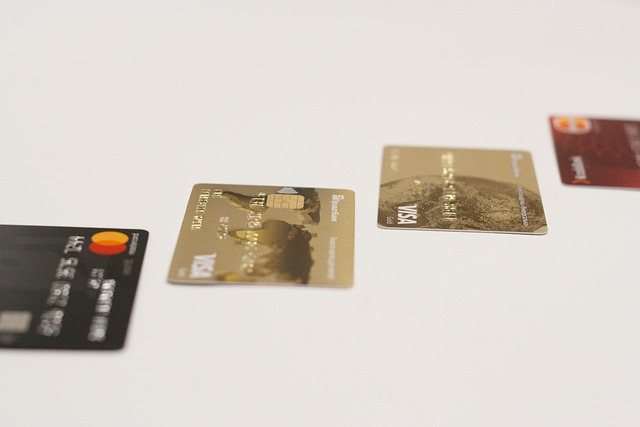Table of Contents
Introduction
Credit cards have become an integral part of modern-day financial transactions, offering convenience, flexibility, and various benefits to consumers worldwide. This comprehensive guide explores everything you need to know about credit cards, including how they work, types of credit cards, benefits, potential pitfalls, tips for responsible usage, and managing credit card debt effectively.
What is a Credit Card?
A credit card is a plastic card issued by financial institutions that allows cardholders to borrow funds to make purchases, withdraw cash advances, and transfer balances. Unlike debit cards that draw funds directly from a bank account, credit cards extend a line of credit with the promise to repay the borrowed amount, usually with interest, if not paid in full by the due date.

How Credit Cards Work
Understanding the mechanics of credit cards helps consumers make informed financial decisions:
- Credit Limit: The maximum amount a cardholder can borrow on the card, determined by the issuing bank based on the individual&8217;s creditworthiness and financial history.
- Interest Rates: APR (Annual Percentage Rate) represents the cost of borrowing on the card, applied to any outstanding balance not paid in full each billing cycle.
- Minimum Payment: The smallest amount required to be paid monthly to keep the account in good standing, typically a percentage of the outstanding balance (e.g., 2% or $25, whichever is higher).
- Grace Period: The period between the end of a billing cycle and the due date for payment, during which no interest accrues if the balance is paid in full.
Types of Credit Cards
Credit cards come in various types tailored to different financial needs and consumer preferences:
- Standard Credit Cards: Basic cards offering a revolving line of credit with standard features and benefits.
- Rewards Credit Cards: Earn rewards points, cashback, or travel miles on eligible purchases, encouraging card usage and loyalty.
- Secured Credit Cards: Requires a security deposit as collateral, suitable for individuals with limited or poor credit history seeking to build or rebuild credit.
- Charge Cards: Must be paid in full each month, typically offering no preset spending limit but requiring responsible financial management.

Benefits of Using Credit Cards
Credit cards offer numerous advantages beyond convenience:
- Convenience and Flexibility: Accepted globally for online purchases, travel bookings, and emergency expenses without carrying cash.
- Consumer Protections: Purchase protection, extended warranties, and fraud liability protection provided by card issuers.
- Rewards and Perks: Earn rewards points, cashback, or travel perks on everyday spending, potentially saving money on purchases.
- Building Credit History: Responsible credit card usage helps establish and improve credit scores, crucial for future borrowing and financial opportunities.
Potential Pitfalls of Credit Cards
Despite their benefits, credit cards pose potential risks and pitfalls:
- High-Interest Costs: Accumulating interest on unpaid balances can lead to significant debt if not managed responsibly.
- Fees and Penalties: Annual fees, late payment fees, cash advance fees, and foreign transaction fees can add up, impacting overall costs.
- Impact on Credit Score: Late payments, maxing out credit limits, and carrying high balances relative to credit limits can negatively impact credit scores.
- Impulse Spending: Ease of access to credit may tempt overspending beyond financial means, leading to debt accumulation.
Tips for Responsible Credit Card Usage
To maximize benefits and avoid pitfalls, follow these tips for responsible credit card management:
- Pay On Time, In Full: Pay the full statement balance by the due date to avoid interest charges and maintain a positive credit history.
- Monitor Spending: Track expenses regularly to stay within budget and avoid accumulating debt.
- Understand Terms and Conditions: Review the credit card agreement, including APR, fees, and rewards program details, to make informed decisions.
- Utilize Credit Wisely: Keep credit utilization low (ideally below 30% of the credit limit) to maintain a healthy credit score.

Managing Credit Card Debt Effectively
If facing credit card debt, take proactive steps to manage and reduce it:
- Create a Repayment Plan: Prioritize paying off high-interest debt first while making at least minimum payments on other cards.
- Negotiate with Issuers: Contact card issuers to negotiate lower interest rates, fees, or payment arrangements if experiencing financial hardship.
- Consider Consolidation: Consolidate multiple credit card balances into a single lower-interest loan or balance transfer credit card, if feasible.
- Seek Professional Advice: Consult a certified credit counselor or financial advisor for personalized debt management strategies and budgeting guidance.
Conclusion
Credit cards can be valuable financial tools when used responsibly, offering convenience, protection, and rewards. By understanding how credit cards work, choosing the right card for your needs, managing spending wisely, and paying balances in full and on time, consumers can leverage the benefits of credit cards while avoiding potential pitfalls. Remember, responsible credit card usage is key to building and maintaining a strong financial foundation for the future.
References
- Consumer Financial Protection Bureau (CFPB). (2021). Credit Cards. Retrieved from https://www.consumerfinance.gov/
- Federal Trade Commission (FTC). (2021). Credit & Loans. Retrieved from https://www.consumer.ftc.gov/

